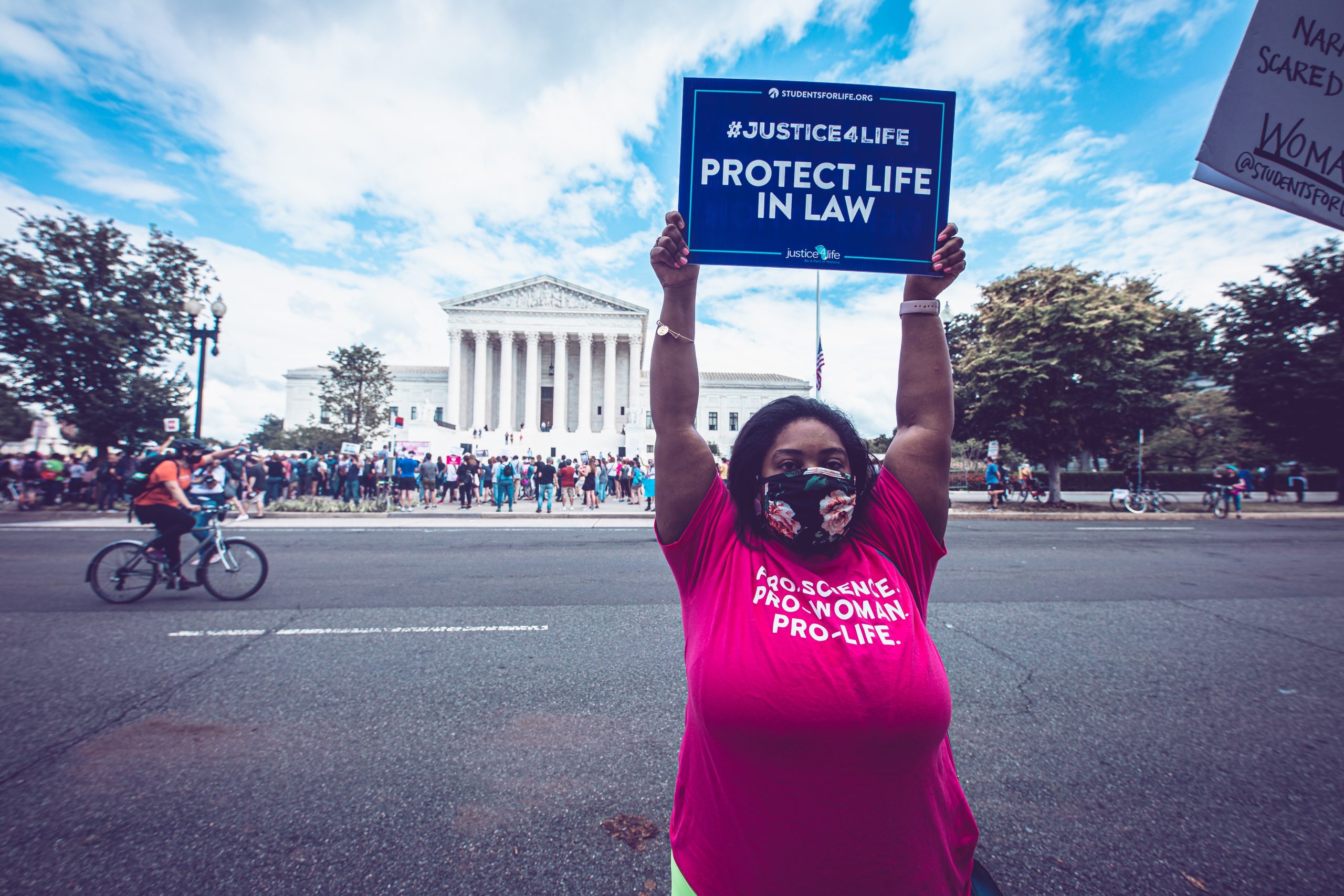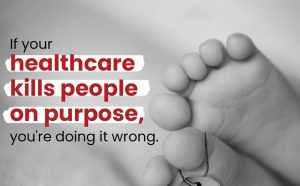
In the U.S. House of Representatives, The Protecting Health Care For All Patients Act was introduced today by Chairman Banks, Dr. Wenstrup, and Rep. McMorris Rogers of the Republican Study Committee. The bill aims to prevent discrimination against Americans with disabilities by expanding the prohibition on quality-adjusted life years (QALY).
Why it matters: Lives are measured in QALY which equals one year of life in perfect health. Public and private health insurers use QALY to determine cost-effectiveness, a disproportionate form of discrimination towards disabled or chronically ill individuals. And telling people that if they have children with health issues, those children won’t get care is an inducement for abortion.

- The innate value in every human being is ignored by QALY and deems a person worthy of medical attention based on a price tag. Third parties often try to sway parents towards abortion when a diagnosis is made of the preborn that could be a potentially high cost of care. Students for Life Action (SFLAction) adamantly oppose any practice that suggests life is less worthy if not perfectly healthy according to a government created formula.
What they’re saying: SFLAction President and mother of children with a genetic condition, Kristan Hawkins, wrote, “The Institute for Clinical and Economic Review (ICER) is a self-appointed health-care cost watchdog that regularly issues reports on whether it’s worth the money to prolong or save the lives of the sick or disabled. ICER is composed heavily of people who helped construct the Affordable Care Act and people with ties to socialized medical systems worldwide.”

- The Wall Street Journal said QALY, “Puts a dollar figure on a year of healthy life, calculates how much health a drug restores to a sick patient, then prices drugs accordingly … it works like this: One year spent in perfect health equals one QALY. A year with some kind of health problem that affects quality of life would be worth less than one QALY. How much less depends on the severity of the problem.”
- Forbes reported, “In the U.S., ICER is gaining traction, in ways perhaps unimaginable several years ago. For many years it was thought that the U.S. would be immune to cost-effectiveness thresholds. It was common to hear the refrain: “We don’t do rationing here, at least not explicitly.” Well, explicit rationing is no longer something that’s merely done in single-payer systems or international markets. ICER is partly responsible for reintroducing the discussion of explicit rationing in the U.S.”

The big picture: QALY is a death sentence and an inducement to abortion. The Protecting Health Care For All Patients Act supports the most vulnerable and fights against third parties who justify abortion and punish those who chose life, regardless of pre-existing conditions.
- Hawkins stated, “In a medical emergency, physicians make tough calls, but this crisis has uncovered problems with rationing policies: Economic considerations are replacing the goal of life-affirming care for some. Ending a life may be cheaper than treating a patient, but that’s why when people are ill, they see doctors — not accountants.”
Read more of Hawkins’ writing on QALY:
- Fox News: Kristan Hawkins: I’m terrified at the thought of what government-run health care means for my children
- Real Clear Politics: Medicare for All Scares Me More Than Coronavirus
- Washington Times: Americans stand to lose a lot with Medicare for All, especially children
- Washington Times: Obamacare: ‘What if they made you buy a product that ends your life?’
UP NEXT: Good News for Any American in Less Than Perfect Health
